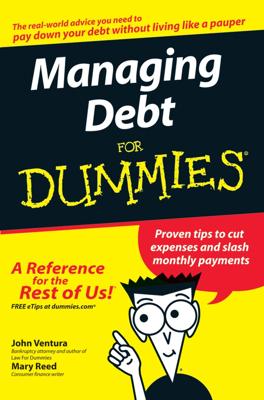The first step to building wealth is to avoid unnecessary debt. Not only does setting aside money for future expenses save you the cost of debt interest payments, but it can also earn money for you if you invest your saved cash in an interest-bearing account. As you save, you help fill your pipeline instead of draining it!
Four criteria determine whether debt is good or bad. Before taking on debt, ask yourself the following questions. If the answer to all four questions is yes, you’re signing up for good debt:
Is it a need? If dependable transportation is a requirement for your job, buying a car to replace one that’s on its last legs is clearly a need. But if your TV works and those ads for big-screen flat-panel models are making your mouth water, that’s a want — which leads to bad debt.
Do you need to buy it before you can save up for it? Consider the timing. You’re looking at good debt if your car is beyond repair and you need dependable transportation to keep your job. If the big-screen TV is on sale this weekend, you can wait. It’ll almost certainly be cheaper six months down the line.
Can you afford the payment? If the payment fits your budget, you won’t have to cut back on other needs. That’s good debt. If you can’t afford it, you’ll have to cut back on some newly defined extras — like gas, food, and braces for the kids.
Are the financing terms okay? Check the rate, terms, and prepayment penalties.
With good debt, you may have checked with your bank, credit union, or trust company, so you know the interest rate is competitive and the length of the car loan isn’t longer than 48 months.
You’re into bad debt if you use the in-store financing to buy that new couch. The danger: If you don’t pay off your purchase within the allotted time, the finance company generally applies interest retroactively, effective from the date of purchase at rates as high as 35 percent! So that $1,000 sofa could suddenly cost you at least $1,350, and interest continues to accumulate until you pay it off.
Saving up for a future expenditure keeps you in control of your money. By signing up for debt, you give away that control. Avoiding bad debt keeps more money in your income pipeline going toward your needs, wants, and other goals.

